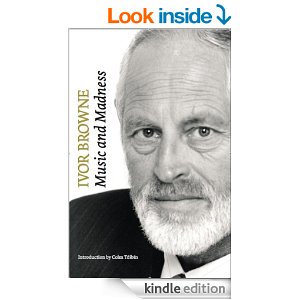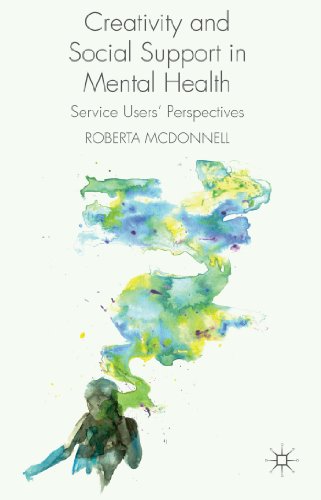A summary and some interesting extracts. Do let me know if you have any questions or comments. Thanks, Roberta 🙂
The Galway Study: Creative Mental Health
27 May 2015 2 Comments
in Anthropology, Art, Books, Community, Creativity, Mental Health
Archetypes and Elixirs: A Jungian Perspective on Life as We Know It.
21 May 2014 8 Comments
in Anthropology, Archetypes, Books, Creative Journaling, Creativity, Existentialism, Fairy Tales, Film, Individuation, Jungian psychology, Myth, The Hero's Journey Tags: archetypal energy, archetypal symbols, authenticity, books, Fairy Tales, film, hero's journey, Jean Raffa, Jung
One of the key themes in Jungian psychology is that of individuation, which is an expansive process involving realisation and manifestation of the archetypes within. Archetypal aspects refer to many different facets of the self’s potential, such as the Shadow, the Animus or Anima, the Wise Elder or the Trickster / Magician. Many of these inner selves are unconscious or undeveloped and only emerge when we are able to unearth their existence through various channels such as encounters, dreams and active imagination.
All cultures have notions of human personality and self, made up of multiple aspects, many of which are oppositional or paradoxical and often these various traits are personified into panthea of gods and goddesses or other equally varied groups of characters. Take, for instance, the ways in which each of the Graeco-Roman deities encapsulates a set of particular human strengths and weaknesses. For instance Athena is wise and just but also warlike and ruthless in certain circumstances. Apollo likewise brings illness but also healing in the form of the arts and muses.
Individuation – Incorporating the Archetypes
At the start of every human life there is a diffusion of experience, expression and personality. That complex cloud of embodied sensations in the world gradually becomes organised into patterns of thought, feeling and memory and infused into a sense of the individual self. While all these phenomena are shaped and informed by the physical and social environments around us, variously named and operationalised through culture, certain broad categories of experience and expression can be identified across humanity and according to Jungian thought, these constitute the archetypes. Archetypes are universal potentials for broad human drives, yet as potentials for patterning, they are manifest in ways unique to individuals and cultures, rather like the ways in which each snowflake is structured through certain rules of construction, yet no two snowflakes are the same.
Jung stressed that this individuation was not a materialistic ‘individualism’ but a spiritual quest, a journey, and one which required a certain amount of courage and determination to overcome fear and resistance within the self. It also involves the withdrawal of projections, in other words the taking of responsibility for our own lives and recognising the fact that our own growth is in our own hands. To incorporate the archetypes successively through the sequence of Shadow first, then Anima/Animus and beyond, entails as well a kind of accumulated knowledge or insight – the elixir of life, the wisdom of the ages. And that wisdom and insight is most beneficially directed at ourselves, as The Oracle reminded Neo in the very archetypal movie ‘The Matrix’.
We have helpers along the way, though, such as family, friends, inspirational leaders and authors, as well as examples to follow in the guise of totems, god-like and saintly figures and characters from myth and legend. We also have negative influences, sometimes within the established society and canons of accepted ideas and practices around us, sometimes within our circle of relationships, and sometimes within ourselves as internalised negative attitudes and inner critical voices.
The Hero’s Journey
Archetypes and Elixirs form the raw material of the hero’s journey, our journey. Our internal responses to events, characters and relationships in the world around us shape the person we become. Whether that is contracted, frozen and bitter or expanded, empathic and wise, is largely up to us. The Archetypes are always there, waiting for us to awaken them, the Elixirs are ever-present and calling to be consumed. Taking the plunge can be the most difficult first move but also the most exhilarating. Starting with some dream delving is one way in, creative journaling another. Both of these techniques helped to jump-start my own journey, informed and motivated by reading the works of Dr Carl Jung and inspirational blogs such as Jean Raffa’s here on wordpress. Individuation is an act of self-creation and the creative potential is inherent in all humans. Any creative activity can get your individuating juices flowing, indeed creativity has been identified as a significant booster of mental health promotion and recovery.
Thanks for dropping by,
Enjoy the Journey 🙂
Flaming Elixir Image source Guest of a Guest website, New York http://guestofaguest.com/wp-content/uploads/2010/11/red-snapper-210×300.jpg
Creative Mental Health: Ireland
11 Mar 2014 1 Comment
in Anthropology, Community, Creativity, Day Centres, Existential Psychology, Individuation, Mental Health, Music, New Psychiatry, Recovery, Rehabilitation, Spirituality Tags: anthropology, art, community, community development, connection, existentialism, identity, inner self, mental health, music, positive psychology
Creative Mental Health 
Something of a paradigm shift is underway in the mental health field, as I discussed in a recent post about new thinking in psychiatry. Though not a psychiatrist, I have many years of experience as a mental health nurse and health researcher, some of which were spent with people suffering in acute wards, at other times alongside those struggling to invoke recovery in a community setting. These experiences, along with many other studies, can be read about in my current publication Creativity and Social Support in Mental Health: Service Users’ Perspectives (Palgrave 2014). Without exception I observed honest, courageous people using many creative means to rebuild their lives and a strengthened sense of self, finding to my amazement and delight that many other researchers and service user activists were describing similar findings and experiences. It was, then, with further excitement, that I came across the work of Professor Ivor Browne in Dublin and beyond.
Professor Ivor Browne
In Music and Madness, we get a tremendous insight and an engaging story of how life experiences, in combination with with a very creative and fearless thinker, brought the somewhat maverick but highly effective psychiatrist to carry out the extensive work of support, reform and community development that he has accomplished in Ireland and beyond, a legacy which is still vibrant and still very much in the making. As a citizen-wide mode of mental health promotion, community development is essential and shifts our thinking away from a culture of individualised pathology and into a sense of the relational nature of humans – we make each other and we make ourselves, it’s a dynamic, two-way process. I am planning future posts that will be based on interviews with people involved in community arts, mental health promotion and recovery support. In the meantime, enjoy Professor Browne’s work through his books and some interesting programmes from RTE on the history of mental health care and treatment.





